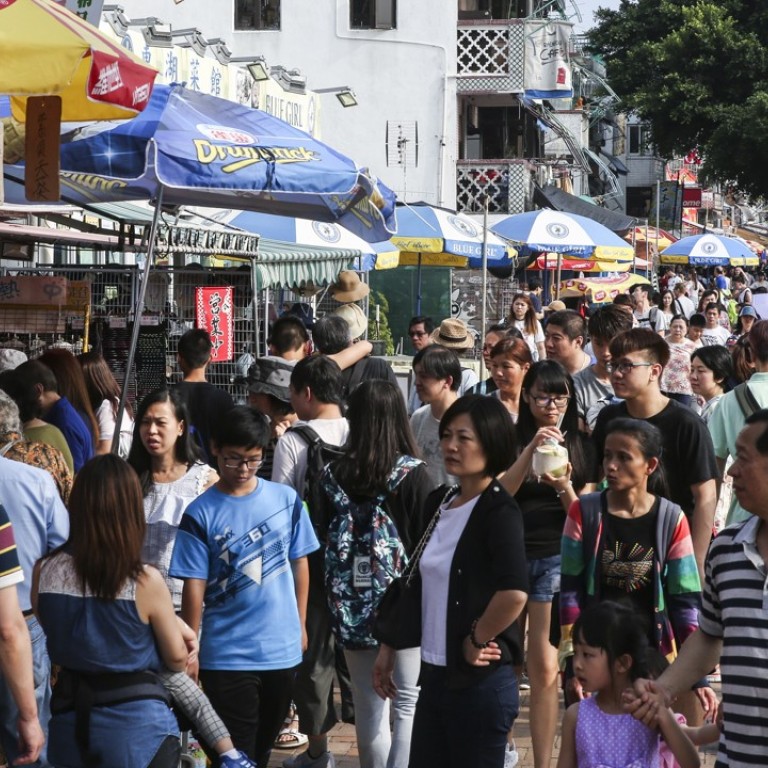
Letters to the Editor, May 25, 2017
Time for noisy island vehicles to be silenced
From Monday through midday Saturday these extremely noisy vehicles race up and down the narrow pedestrian alleys on the island emitting noise at levels far exceeding the maximum permitted in the rest of Hong Kong.
According to the Noise Control (Motor Vehicles) Regulation, all motor vehicles first registered after June 1, 2002 are required to comply with European and Japanese noise emission standards, or better.
However, for some reason, village vehicles have an exemption to this rule.
Perhaps it was intended for a transitional period.
Whatever the reason, 15 years is plenty of time for these extremely noisy vehicles to be fitted with silencers.
Furthermore, quiet electric vehicles are now readily available. Similar delivery carts, powered by quiet electric motors, are the norm in Beijing and elsewhere on the mainland.
The exemption should be repealed immediately so that residents of Cheung Chau can once again live in peace.
B. Wong, Cheung Chau
Rich thumbing noses at the environment
When I look at the sums spent on some of the weddings in the article (such as Huang Xiaoming and Angelababy), I think about how much has been wasted.
At Angelababy’s wedding, there were tens of thousands of roses and a 2.5-metre-tall cake. The roses will of course have ended up in bins and this is so environmentally unfriendly.
Also, a lot of food will be left uneaten by the guests at these weddings and so there is another kind of waste. Even though money is no object, I wish wealthy couples would take an eco-friendly attitude when arranging their weddings.
Cecilia Cheng, Kwai Chung
Latest terrorist attack warning for all of us
I was shocked to read about the terrorist attack in Manchester following the Ariana Grande concert.
It was tragic to realise that some concertgoers had gone there to enjoy an evening out and would never return home.
Attacks like this remind us that we live in a very dangerous world and face so many threats. And it makes you realise the importance of cherishing each day.
Of course, the Hong Kong government must remain vigilant, given that terrorists can strike anywhere and take whatever measures are necessary to protect citizens.
Leung Yiu-Hei, Ho Man Tin
Offer tax carrot to encourage more babies
The problem of having an ageing population is becoming more serious in Hong Kong.
As people grow older, they often have to work less, earning and saving less. Then when they retire, they earn no salary.
This often means that the their children have to provide them with the necessary financial support.
As life expectancy rises, the ageing population will increase and this will generate a number of economic and social problems. We will see a shrinking of the workforce, more elderly citizens who are not working and the government having to pay out more in the form of pensions and other benefits for elderly citizens.
With a smaller workforce, it will be necessary to increase taxes to pay the social security bill. Hong Kong’s problems are being exacerbated by the falling birth rate as fewer couples start a family.
The best way for the government to address this problem is to provide appropriate tax incentives to couples to have children, so that the birth rate can increase.
It should also try to encourage more people to join the workforce, such as women who have stayed at home, early retirees, persons with disabilities and ethnic minorities.
Donald Wong, Tseung Kwan O
Rain warning should have been earlier
It seems that the Hong Kong Observatory performed better during the heavy rainfall on Wednesday than it did last year.
It issued the amber rainstorm signal at 6.40am. However, there was still a lot of disruption for Hongkongers trying to get to work and school, especially between 8am and 9am, the busiest time during the morning rush hour.
The downpour caused the inevitable flooding and serious traffic congestion. Many people turned up at work and college soaked to the skin.
The Observatory is able to predict weather conditions well in advance and so I wonder why it did not issue the red rainstorm warning earlier than 9.15am. If it had done so [before 8am] this would have been a big help, especially to students, many of whom, if they had still been at home, would not have had to go out in the downpour struggling with umbrellas and heavy bags.
With global warming leading to more extreme weather conditions around the world, I think the Education Bureau and Obsservatory should discuss how to revamp the rainstorm warning signals, so that they can deal more effectively with bad weather conditions similar to what was experienced on Wednesday.
Ho Yuk-hang, Ho Man Tin

